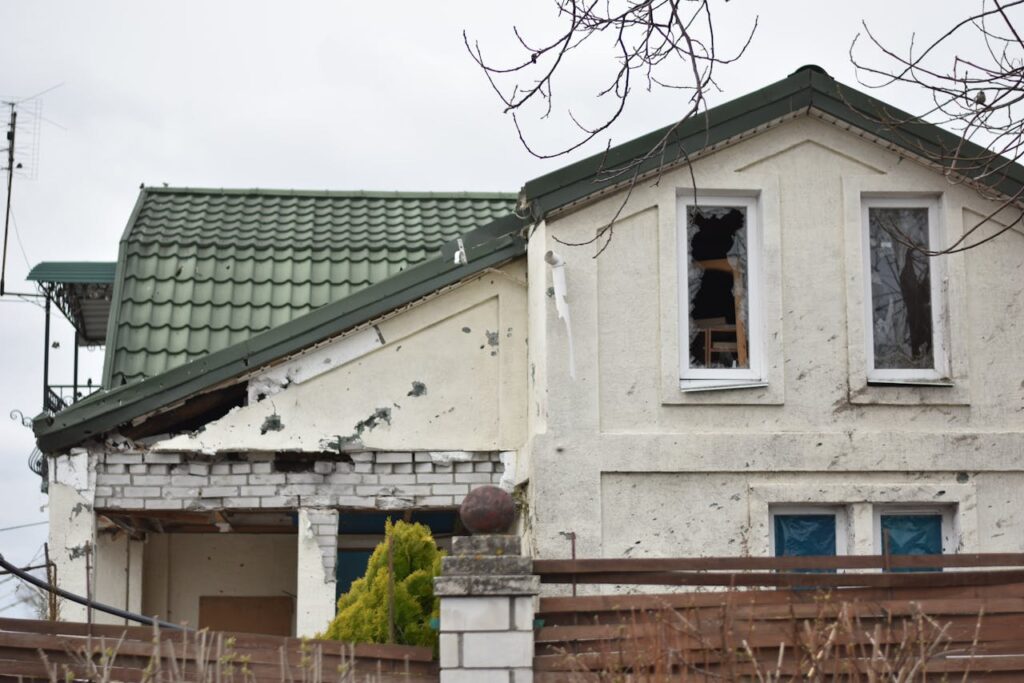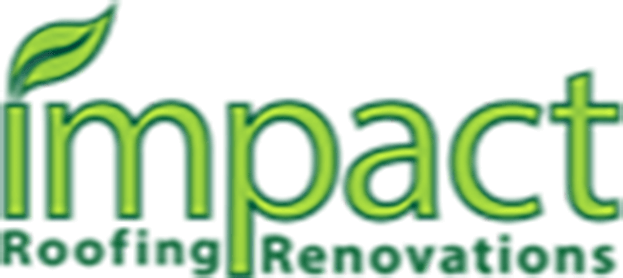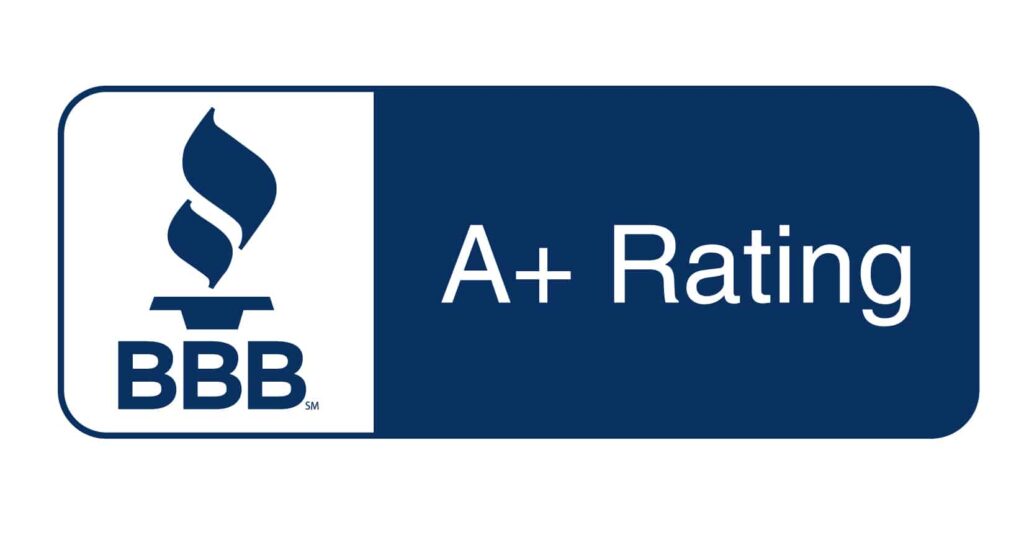Insurance for roofing repairs is more essential than ever, especially with extreme weather events on the rise. In 2023 alone, there were 6,962 reported hail events, each one posing potential threats to roofs across the country. Roofing damage, whether from hail, storms, or general wear, can bring hefty repair bills if you’re not well-covered.
But what should you look for in a solid roofing insurance policy? And how can you be sure it’ll cover you when the unexpected happens?
In this guide, we’ll cover the types of roofing insurance, how to file a claim effectively, and tips to maintain solid coverage. By the end, you’ll know how to protect your roof—and your wallet—no matter the weather.
Impact Roofing provides expert guidance for homeowners and commercial buildings navigating roofing repairs and insurance claims. Our team is here to ensure your home stays safe, durable, and well-protected.
Types of Roofing Insurance
When it comes to roof repairs, insurance coverage can feel a bit confusing. Here’s a rundown of some of the primary types of insurance coverage that can safeguard your home and help manage roofing insurance costs.
Homeowners Insurance Coverage for Roof Repairs
Homeowners insurance generally provides coverage for roof repairs if the damage is caused by a sudden, accidental event, like a storm or fire. However, the extent of this coverage can vary. Most policies cover costs related to general liability, meaning repairs from unexpected events are typically protected.
But it’s important to note that if your roof has damage due to wear and tear or neglect, homeowners insurance is less likely to cover it. Working with a roofing company familiar with insurance claims can be helpful in understanding what specific damage might qualify.
Specific Roofing Repair Insurance
For more comprehensive protection, there are policies specifically tailored to roofing repairs and replacements. Unlike standard homeowners insurance, these specialized roofing insurance policies focus directly on roof damage, regardless of the cause. This can provide peace of mind for those living in areas prone to weather extremes.
While specific roofing insurance can add to your annual costs, it’s often worth considering if you want dedicated protection for your roof. Contacting a roofing company with knowledge of roofing insurance cost comparisons can guide you in evaluating these options
Comparing Roof Warranties and Insurance Policies
While both warranties and insurance policies can help reduce repair costs, they offer different protections. A roof warranty, often provided by the roofing company, typically covers manufacturing or installation defects. In contrast, roofing insurance from an insurer is broader, helping cover costs from unexpected damage like storms or falling trees.
Understanding these differences allows you to select the right coverage, whether it’s a warranty, insurance policy, or both. Each plays a role in reducing your roofing repair expenses while ensuring you’re well-prepared for the unexpected.
Coverage Details and Limitations
Understanding what’s covered by insurance for roofing repairs can make all the difference when unexpected damage occurs. Different policies cover different types of damage, so knowing the details of your insurance coverage can help you plan for repair costs without surprises.
Most general liability insurance policies cover roof damage caused by sudden events like storms, falling objects, or fire. These incidents are typically considered “perils” and often qualify for coverage, depending on your policy. If your roof suffers from one of these unexpected events, the insurance company may help cover repairs or replacements.
However, many policies exclude certain damage types. Routine wear and tear, neglect, and damage from poor maintenance are typically not covered. For example, if a roof deteriorates due to age or poor upkeep, you may need to handle those costs independently. Some materials, like metal or tile, also have unique terms that may limit coverage.
Finally, coverage often varies by roofing material and structure. Shingle roofs, for instance, may receive different coverage terms than metal or tile roofs. It’s worth reviewing these details with your insurance company to understand how your specific roof type and materials impact your policy.
READ MORE: How Contractors Repair Roof Hail Damage
Roof Damage Assessment and Policy Criteria
Assessing roof damage accurately is key when filing an insurance claim. Start by evaluating the severity of the damage—check for visible signs like missing shingles, leaks, or structural sagging. In cases of extensive damage, it’s wise to call in a roofing contractor to document the condition professionally, which can strengthen your insurance claim.

The age of your roof also plays a role in insurance coverage and premium costs. Newer roofs often qualify for more extensive coverage since they’re in better shape and less likely to fail. Conversely, an older roof may come with limited coverage or higher premiums, as insurers view it as a greater risk.
Routine maintenance can also impact your claim’s success. Regular upkeep helps demonstrate to your insurer that you’ve cared for the roof, potentially making it easier to secure coverage for repairs. This makes scheduling periodic inspections and repairs a smart move for long-term coverage stability.
Filing Roofing Repair Insurance Claims
Filing a claim for roofing repairs can feel overwhelming, but breaking it down into steps can help:
- Report the Damage: Contact your insurance company to report the roof damage as soon as you notice it.
- Review Your Coverage: Check what your roofing insurance cover includes and any deductible amounts.
- Gather Documentation: Take clear photos of the damage, including close-ups and wide shots.
- Schedule an Inspection: Have a roofing company inspect the damage and provide a detailed report.
- Submit an Estimate: Submit an estimate from a trusted roofing contractor for the anticipated repair costs.
Role of Insurance Adjusters in Roofing Claims
Insurance adjusters play a big role in determining the outcome of roofing repair claims. They assess the damage, considering factors like the roof’s age, condition, and extent of wear. Based on this, they estimate repair or replacement costs.
Roofing companies often work with adjusters to clarify damage and offer expert insight, ensuring you get an accurate evaluation. A well-prepared adjuster’s report helps you secure fair coverage for your roofing repairs.
Can a roofing company help with roof damage insurance claims? Find out here
Costs and Premium Factors
Several factors play into how much you’ll pay for roofing insurance premiums. The age and type of roof material, local climate, and even building regulations impact costs. Roofing businesses often recommend premium materials and regular maintenance to help keep costs predictable.
Why does a roof’s condition matter so much? Insurers often reward well-maintained roofs with lower premiums since they’re less likely to face severe damage. A roof in top shape is a solid investment, both for your home’s value and your insurance rate.
Deductibles for Roof Repair Claims
When it comes to insurance claims, deductibles are the portion of repair costs you’re responsible for paying. Deductibles for roofing repairs generally range from $500 to $2,500, depending on the type of policy and coverage details.
Higher deductibles usually lower premium rates, but be sure to find a balance that suits your budget and offers enough coverage if significant repairs become necessary.
Selecting the Right Insurance for Roofing Repairs
Finding the right insurance policy for your roof can feel like a puzzle, but a little guidance can go a long way. Different roofs, from asphalt shingles to metal, have unique needs, and some policies are better suited to certain types. Comparing options is crucial, as coverage levels, deductibles, and benefits vary widely.
To save money in the long run, look for a policy that aligns with your roof type and local climate. Does the policy cover hail damage or offer discounts for regular maintenance? By asking questions and comparing policies, you’ll get a better sense of what’s right for your specific roofing needs.
Top Insurance Providers for Roof Repair Coverage
Here are some top insurers known for comprehensive roofing repair coverage:
- State Farm: Offers a wide range of options and discounts for combining with personal auto insurance.
- Allstate: Known for affordable premiums and solid customer support.
- Farmers Insurance: Includes repair coverage for high-wind and storm-prone areas.
- USAA: Top choice for military families, offering specialized roof coverage and benefits.
When selecting a policy, take time to read the exclusions and key terms carefully. Some policies may cover roof repairs but exclude specific types of damage, like gradual wear or certain roofing materials. Understanding these details can prevent unexpected legal fees or out-of-pocket costs, helping you make the best decision for your roof and wallet.
READ MORE: How to Avoid Insurance Scams
Preventative Measures and Maintenance for Roof Longevity
Keeping your roof in top condition can prevent costly repairs and even reduce insurance premiums. Regular roof inspections are key to catching small issues before they turn into big headaches. Here’s how routine inspections benefit you:
- Help spot minor damage early to prevent larger, more expensive problems.
- Increase the roof’s lifespan by addressing wear and tear.
- Show your insurer that you’re committed to maintenance, which could improve your insurance package terms.
Simple maintenance tasks can also do wonders for your roof. Cleaning gutters, clearing debris, and trimming nearby trees help reduce the risk of property damage and water buildup, both of which can lead to costly repairs. Many insurers see well-maintained roofs as a lower risk, which could mean reduced premiums over time.
But who should handle your repairs? Qualified roofing professionals are essential, especially if you want repairs that meet insurers’ standards. Choosing professionals with general liability coverage not only protects you but also ensures that the work meets insurance requirements.
Is your roof due for a checkup? Take action today and protect your home with Impact Roofing.
Emergency Roof Repairs and Insurance

When a storm damages your roof, quick action can prevent further harm and ensure smooth claims processing. Here’s a step-by-step guide to help you navigate emergencies with insurers:
- Prioritize Safety: First, check your home for immediate hazards. Stay clear of any areas with severe damage until roofing contractors assess them.
- Document the Damage: Take clear photos and videos of the affected areas. This documentation is essential for your insurance claim.
- Make Temporary Repairs: Apply temporary fixes to prevent further damage, like using a tarp to cover exposed areas. Many insurance policies cover these fixes as they protect your home from additional harm.
- Notify Your Insurer: Reach out to your insurance provider as soon as possible. They’ll guide you through the next steps for submitting a claim.
- Contact Roofing Contractors: Work with reputable contractors to get an estimate for permanent repairs. Insurers often prefer working with experienced contractors to ensure quality and compliance.
Common Challenges in Roofing Repair Claims
Navigating roofing repair claims can be a bumpy road, especially if you’re met with a denial. Common reasons for claim denial include wear and tear, lack of maintenance, or damage that insurers deem “pre-existing.” To avoid surprises, document any preventative maintenance and ensure your roof is well cared for. This can be a game-changer when dealing with insurers.
Communicating effectively with insurance adjusters is another key step. When they arrive to inspect the roof, walk them through your documentation, including photos, receipts, and maintenance records. Clear, concise communication helps build a case and shows that you’ve done your part to maintain the roof.
If a claim is denied, don’t give up just yet. You have the right to appeal. Review the insurer’s reasoning and gather additional evidence if needed. An appeal can sometimes turn a denial into an approval, saving you the costs of repairs.
READ MORE: How Long Does Roof Repair Take and What to Expect
Financial Impact of Roofing Repair Insurance
Investing in good roofing insurance and regular maintenance can do wonders for your property’s value. A well-maintained roof not only boosts curb appeal and assures potential buyers that the home has been cared for.
Plus, homes with insurance that cover roof repairs tend to appeal more to buyers who see it as an added layer of security.
When weighing the cost of insurance premiums versus repair expenses, a little analysis can go a long way. For many, paying for insurance provides peace of mind.
Tax Implications of Roofing Repairs and Insurance
Roofing repairs and insurance can also have tax implications. While most roof repairs aren’t tax-deductible for homeowners, they can count as capital improvements, potentially reducing future capital gains tax.
For rental properties, however, roofing repairs can often be deducted as maintenance expenses, making it a win-win for landlords. Always consult with a tax professional to understand the specific benefits for your situation.
Protecting Your Home with Insurance for Roofing Repairs
When it comes to safeguarding your roof, having the right insurance for roofing repairs is essential. Understanding your coverage, keeping up with maintenance, and knowing when to file a claim can make all the difference.
Partnering with an experienced roofing company also ensures that repairs meet insurance standards, providing you with peace of mind.
If you’re reviewing your policy or thinking about a new one, ask questions about exclusions, deductibles, and coverage limits. With the right balance of coverage and proactive care, your roof can stay strong through the years, and insurance can help manage costs if an unexpected issue arises.
Impact Roofing offers expert guidance on roof care and insurance claims. We provide reliable repairs and support to help you navigate your insurance needs with ease.




